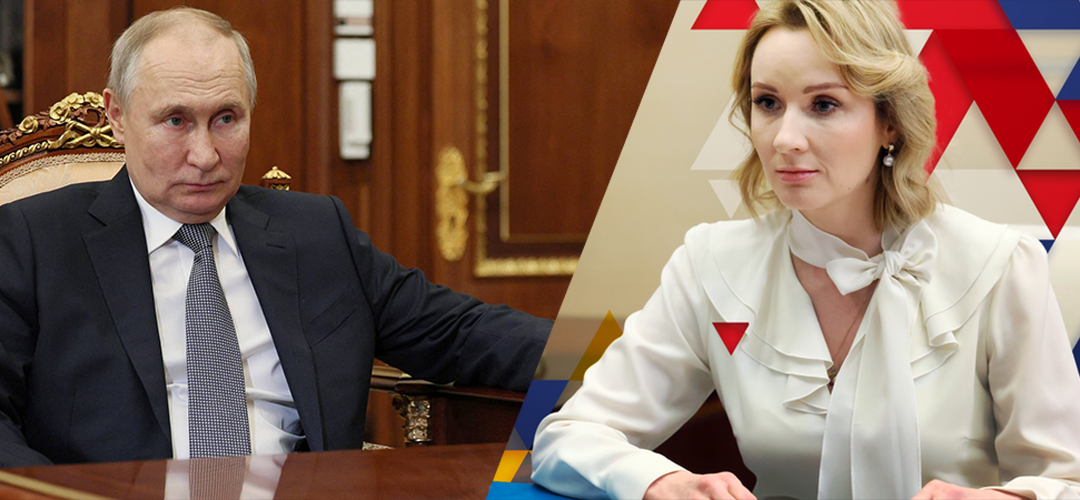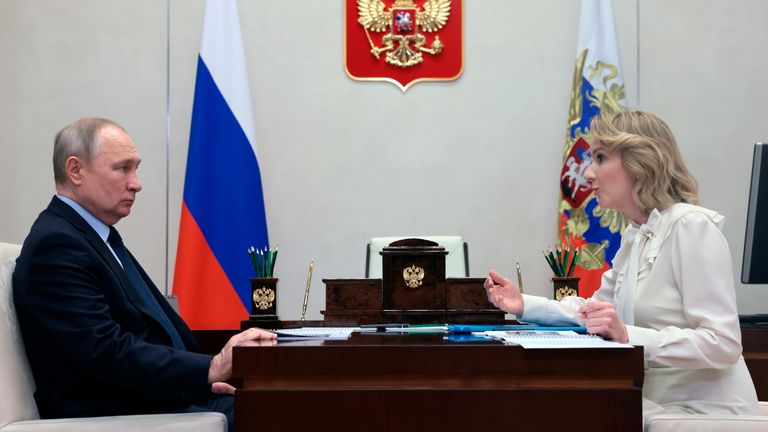War: Crime & Punishment
April 1, 2023 | Expert Insights

The International Criminal Court (ICC) has issued arrest warrants for Russian President Vladimir Putin and Maria Alekseyevna Lvova-Belova, Russia's commissioner for children's rights, in relation to the forced deportation of children from Ukraine to Russia. Allegedly, President Putin bears “individual criminal responsibility for committing the acts directly or indirectly, and for failing to control his subordinates.” The ICC prosecutor emphasised the need to hold those responsible for alleged crimes accountable and to return the children to their families and communities. The warrants were initially kept confidential to protect victims and witnesses but were later made public to prevent the further commission of crimes.
While Russia does not recognise the court and does not extradite its citizens, the warrant sends a signal to senior Russian officials and could limit their ability to travel internationally. While serving heads of government enjoy immunity, there is a precedent for a future Kremlin leader to decide to send Putin to The Hague. The prosecutor could also form cases of new allegations against Putin, thus expanding the warrants.
Many commentators were quick to dismiss the warrant as having little likelihood of being executed. Yet, history demonstrates that current international justice initiatives have been significantly more effective than many imagine.
Background
The current age of accountability for genocide, crimes against humanity, and war crimes may be traced back to United Nations Security Council Resolution 780 (1992), which established the United Nations Commission of Experts on the Former Yugoslavia. A year later, the first contemporary multilateral war crimes tribunal was established under Chapter VII of the Security Council's jurisdiction.
Before the issuance of a warrant for Putin's arrest on March 17, approximately eighteen heads of state or major military forces were wanted by international justice for serious multilateral efforts at accountability under customary international law or treaty law for genocide, crimes against humanity, and serious war crimes. This list contains officials sought by international tribunals established under the authority of Chapter VII of the United Nations Security Council for Yugoslavia and Rwanda, by multilateral treaties such as the Rome Treaty that established the International Criminal Court, by multilateral ad hoc courts established for Sierra Leone and elsewhere, and by domestic courts established with significant international support and assistance, such as in Cambodia and Iraq.
Many of these courts also sought the arrest of lower officials, with varying degrees of success. However, heads of state and key political or military leaders targeted by international courts have been brought to justice considerably more frequently than subordinate authorities.

Analysis
While international justice has naturally been framed at the behest of liberal western democracies (to which many left-leaning analysts will strongly object), it has some achievements to its credit over the last few decades. For one, a few of the brutal perpetrators of some of the most heinous war crimes in the global south were made to pay for their crimes under the aegis of the ICC but largely under the policing power of the West.
The ICC website hosts the biodata of 51 defendants. A quick scan of their nationalities would be illuminating as they mostly hail from failed states or states that are close to collapse and have no sovereign government to defend them.
Fifteen men charged by the ICC before Putin have faced some form of justice before a legal body. Two of the fifteen were acquitted for lack of evidence under less-than-ideal conditions, but they appeared before judges of the ICC and had their accusations dropped. Two others of the eighteen were subjected to harsh justice and were slain or committed suicide before being transferred to an international tribunal. Three of the eighteen turned themselves in voluntarily; two had their charges dropped; the third is awaiting trial. Only one of the eighteen significant individuals on this list remains at large.
83 per cent of all heads of state and senior military officials sought by international justice have been brought to justice. Ninety-four per cent have either obtained a verdict from an international court, been killed, or committed suicide prior to their transfer to an international court. 17 per cent handed themselves in voluntarily; of those three, two had their charges reduced and are now free, while the third is awaiting trial. 17 per cent were acquitted, or the charges were dismissed. Zero per cent of the seven deceased males died in their beds as free men.
Advocates of international justice favour a fair trial and a verdict based on the rule of law. An accused who appears before an international court is considered to have "won," even if he or she is acquitted. But sometimes, practical realities intervene, delivering "rough justice" when an accused reportedly commits suicide to avoid being handed over to a court, as occurred with Pol Pot in 1998 or is killed out of vengeance by those who lost relatives and friends at the hands of a ruthless dictator, as occurred with Muammar Gaddafi in 2011.
Putin is the first sitting head of state to be issued an arrest warrant by the International Criminal Court. However, it is exceedingly doubtful that Russia will voluntarily hand over Putin to the ICC. In addition, Russia's status as a permanent member of the UN Security Council with the ability to veto any council action further complicates matters. Putin will be difficult to detain without Russia's participation, as the International Criminal Court relies on the cooperation of states to enforce its arrest warrants.
The International Criminal Court's issuing of an arrest warrant for Putin sends a strong message to future leaders who may violate sovereign borders and inflict war causing human loss and catastrophe. Hopefully, it underlines the notion that no one, not even a head of state (authoritarian, liberal or democratic), is above the law and that those who commit war crimes, genocide, and crimes against humanity shall be held accountable by the world community. Under international law, crimes against humanity, war crimes, and genocide have no statute of limitations.
Assessment
- The function of the ICC in holding leaders accountable for their acts is part of a broader trend toward the creation of international law and norms that limit the ability of governments to act with impunity. In recent years, human rights, environmental conservation, and the avoidance of mass tragedies have received growing attention.
- Although the arrest warrant for Putin may not immediately result in his arrest and prosecution, it constitutes a tremendous advance for international justice initiatives. It emphasises the notion that no one is above the law and displays the international community's commitment to holding leaders accountable for their actions.
- However, the harsh truth is that since World War II, only war criminals convicted have come from either poor third-world countries in Africa or the isolated Serbs in the Balkans. No member of the P5 has ever been called out, despite being the initiators of most conflicts post World War II and accused of huge civilian casualties. Putin’s case promises to break this myth of invincibility. Hopefully, cases of war crimes conducted by the other Western powers in Iraq, Afghanistan and a host of other far-flung conflict spots may also see the light of day and justice served.








Comments